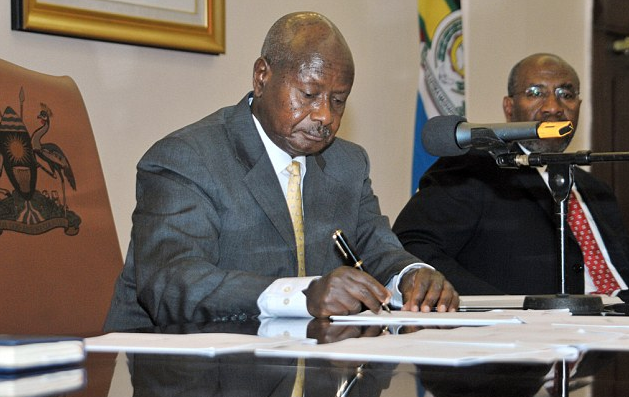In a rather shocking development, President Yoweri Museveni has signed a bill exempting Members of Parliament from paying tax into law.
While opening the final sitting before Parliament breaks off for the holidays, Speaker Rebecca Kadaga told the legislators to their delight that the head of state had finally bent to their pressure and signed the bill into.
“Turns out the Income Tax bill was already signed into law, I asked the President to ask the minister to table it as a bill,” Ms. Kadaga revealed on Wednesday.
TheUgandan understands that the president Museveni signed off the controversial bill into law on November 19th.
As a result, Ugandans will lose more than Shs41.58b in additional revenue if the move by MPs succeeds, according to analysis by Civil Society Budget Advocacy Group (CSBAG).
The MPs’ being able to amended the tax law was in response to Commercial Court ruling ordering the Parliamentary Commission to deduct tax from MPs’ emoluments dating back to 2004.
This judgment, however, infuriated MPs after they realised each would cough up to Shs9m in Pay-As-You- Earn (PAYE), translating into Shs41.5b annually. Parliament appealed the judgment but MPs moved to act even before Court had ruled on the matter.
Mr Julius Mukunda, the executive director of CSBAG, a coalition of activists that gathered more than five million signatures urging the President not to assent to the Bill, have been disappointed by Mr Museveni’s u-turn.
In May this year, Mr Museveni had written to Speaker Kadaga warning that MPs lack the “moral right” to exempt any of their emoluments from taxes and that doing so “would send a dangerous message” with other Ugandans joining the bandwagon to demand a freeze on their emoluments.
Majority Ugandans accuse the MPs of using mileage to hoodwink the President yet the crux of the matter is on blanket exemption of MPs allowances through “unexplained” consolidation of their pay.

During the consideration of the tax Bills in the 9th Parliament, Rubanda East MP Henry Musasizi, moved the disputed amendment to Income Tax (Amendment) Bill 2016, in which Parliament amended Section 21 (1) of the Income Tax Act, Cap 340, to exempt the employment income of members of Parliament, except salary. This move however, provoked public outrage and projected parliamentarians as “greedy and insensitive” to the plight of the poor.











